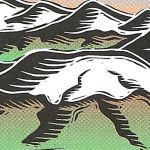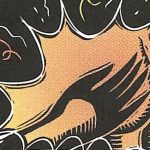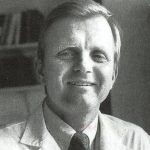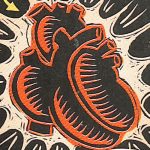Research
June 1, 1997
At research center, patients take on risk for the sake of a cure
From bone marrow transplants to cancer vaccines, patients in the Clinical Research Center opt for experiments that could save lives, maybe even their own.
Drugs, surgery show equal results for heart-attack patients in study
Heart attack patients show nearly identical survival rates, whether treated with powerful anti-clotting drugs or with balloon angioplasty, say UW researchers.
Hormones may place women at greater risk for facial pain
One reason why many more women than men suffer from problems with their jaws may be related to the role of female reproductive hormones.
September 1, 1996
Mount Rainier poses top threat among Cascade volcanoes
Mount Rainier has moved to the top of the list of a UW scientist's most seismically hazardous Cascade volcanoes.
Mothers’ depression can affect babies’ brains
A mother's depression can have significant effects on her infant, UW Psychology Professor Geraldine Dawson reported.
Genes unlock the mysteries of the immune system
Scientists have uncovered some powerful and surprising information about the human immune system.
Inventions made for war adapted to heal people and help the planet
Figuring out how to provide aid during the critical "golden hour" has been the impetus behind a number of projects.
June 1, 1996

Modern plagues
Once beaten by miracle drugs, infectious diseases are back and stronger than ever.
Women at greater risk of death after heart attack treatment
An international team of researchers found that women treated for heart attack with blood clot-dissolving drugs have a considerably greater risk of death and serious complications compared to men.
New hope for ways to reverse breast and ovarian cancers
Biologists have found the first direct evidence suggesting that the gene known to cause hereditary forms of breast and ovarian cancers can also halt—and in some cases reverse—both diseases.
March 1, 1996
Some global warming may be natural, researchers say
As much as one-third of the climate warming since 1975 may come from natural variability in weather patterns, particularly the El Nino effect, say UW scientists.
Smoking, drinking warnings may backfire with older children
Could anti-alcohol and tobacco messages aimed at older children actually backfire? If they are extremely negative, they might, say UW researchers.
Ultrasound: the ultimate Band-Aid?
Sound waves could be used to control internal bleeding suffered by soldiers on the battlefield or motorists in a car wreck if a $10 million UW research project is successful.
UW astronomers use new tools to investigate the mysteries of the universe
A handful of scientists are probing previously unknown mysteries of the universe at a pace unimagined even a decade ago.
December 1, 1995
‘Super mice’ illustrate the power of genetic engineering
Scientists using technology discovered at the UW and other research universities are inserting bits of DNA from a person into a pig or a mouse.
UW study links low folic acid levels to heart disease
UW researchers have found a "strong link" between diets lacking folic acid—found in high levels in orange juice, spinach and dried beans—and heart-related problems.
September 1, 1995

St. Helens still a threat
After blowing its top off 15 years ago, Mount St. Helens still remains the number one threat along the line of Cascade Mountain volcanoes.

Estrogen-cancer link disproved
Women who take estrogen or a combination of estrogen and progestin as hormone replacement therapy apparently do not face an increased risk of breast cancer.
June 1, 1995

Below the belt
Work on male fertility and potency have also made the UW a national leader in advancing men's sexual health.

Meds raise risk
Calcium-channel blockers, widely prescribed to lower high blood pressure, may actually increase the risk of heart attack by as much as 60 percent.